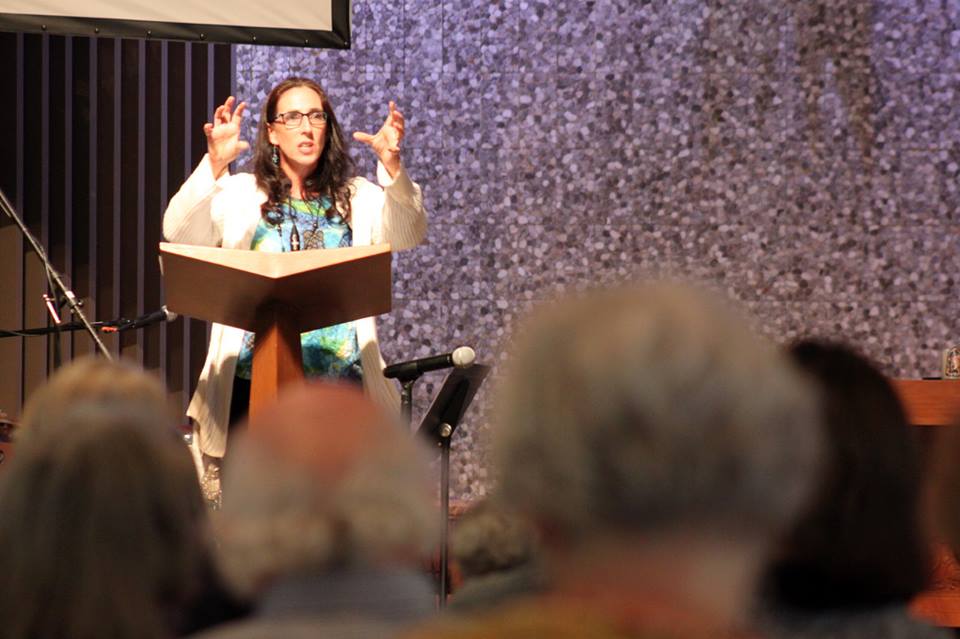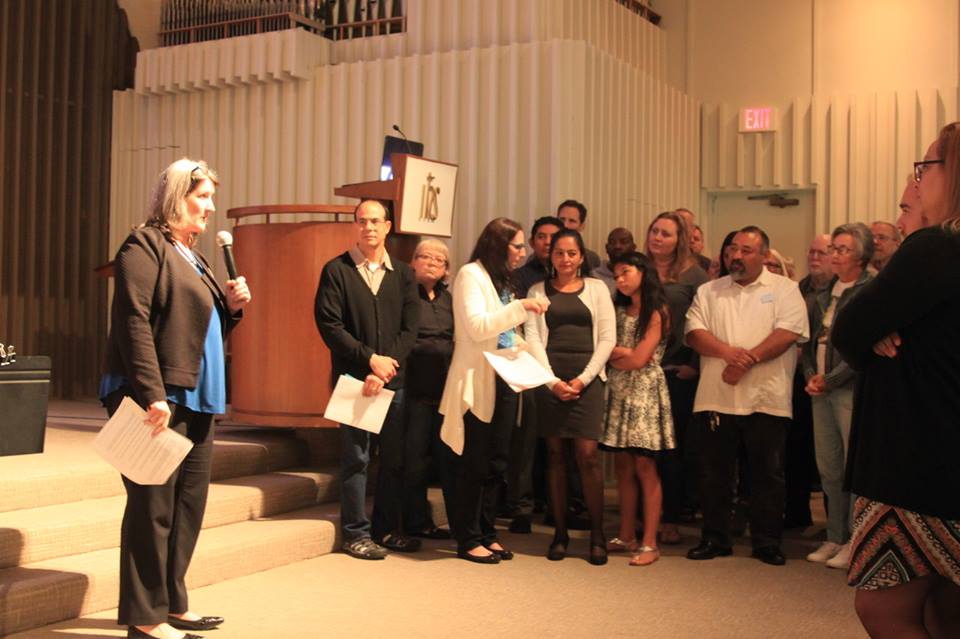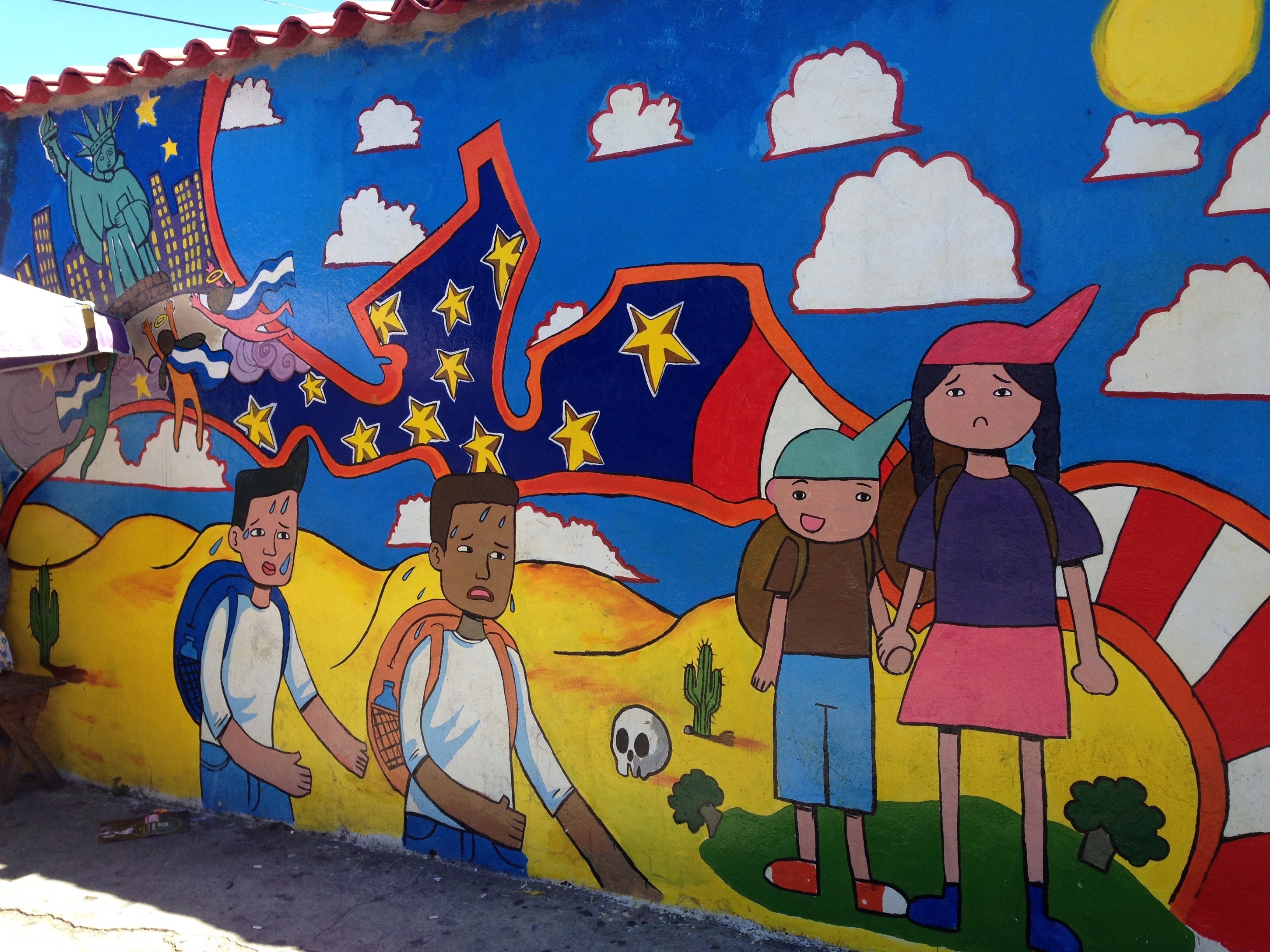A letter from Tracey King-Ortega, serving as Regional Liaison for Central America, based in Nicaragua
December 2017
Write to Tracey King-Ortega
Individuals: Give online to E200518 for Tracey King-Ortega’s sending and support
Congregations: Give to D507539 for Tracey King-Ortega’s sending and support
Churches are asked to send donations through your congregation’s normal receiving site (this is usually your presbytery).
As I sit down to write this newsletter, Honduras is again in limbo. General elections were held on Sunday, November 26, and results have yet to be announced. When nearly 60% of the vote had been counted late Sunday night, the opposition candidate had a seemingly insurmountable lead. Then suddenly, ongoing reporting of the count ceased. When the election tribunal began to post ongoing counting results publicly, the incumbent candidate was inexplicably in the lead. There is an international call for transparency and widespread concern about fraud. Our partners in Honduras tell me it feels like the days of the coup that took place back in 2009.
I’m not a political expert and don’t want to get into the ins and outs of what is currently happening, but I share this with you because it highlights concerns I have about migration issues, push factors for why people are leaving Central America, and the impact mass deportation has across the region.
Last year around this time, I was working with colleagues from the Office of the General Assembly (OGA) on the production of a documentary to try to sensitize and educate our congregations about migration issues. The team did a fabulous job piecing together all that we learned as we traveled through the region talking with people from all walks of life. On the “Genesis of Exodus” website, you will find the film (English and Spanish), its award-winning story map, and a detailed six-week reflection guide for study groups.
To understand the roots of today’s migration, we need to go way back, beginning with colonialism. The conquistadors didn’t see people, but rather resources to be exploited. They moved in, set up camp, and began to establish systems and structures designed to exploit the resources and serve themselves, while excluding the indigenous. This extreme inequality systematically laid the groundwork for the systems and structures that continue to exclude and exploit today.
We can then fast forward to the past couple of decades that have been marked by fierce structural adjustment/neo-liberal policies. These policies focus on getting a country in shape macro-economically, but in practical terms result in once again serving the few and devastating the many by shrinking government and greatly reducing health care, education, and other social services. As a result, today Central America has extremely high rates of unemployment, violence, poverty, and social disintegration.
In the US, we have the unfortunate tendency not to see what lies beyond our borders. We look at the immigration crisis in terms of its impact on the US. We don’t take the time to look at the crises driving the migration. Policies are carried out to serve our own interests, without thinking about their impact elsewhere.
For example, Mexico’s Southern Border Program (with funding and pressure by the US) has ramped up migration controls in Mexico, to some degree lowering the numbers arriving at the US border, but really has done nothing to deter migration. It has only served to make the journey more dangerous.
We talk about increasing deportations as a solution to the perceived “problem” of migration, because supposedly it has adverse effects on the US. But do we ever stop to think what they are being sent back to and the psychological effects these harsh measures are having?
Approximately 2 million Salvadorans are currently living in the United States, many of whom do not have proper documents.
During President Obama’s two terms as president, 150,000 Salvadorans were deported. In the first six months of President Trump’s administration, 11,000 Salvadorans were returned to El Salvador. I’d argue that rather than creating a solution, we are just pushing the problems onto somebody else. Out of sight, out of mind.
Let’s talk a bit about deportees/returnees. There are several factors to think about. What are they returning to? To the same context they felt forced to flee: high unemployment, violence, etc. If there aren’t enough jobs for the current population, how do you then insert tens of thousands into that broken economy?
It is also important to recognize that much of Central America’s economy is dependent upon the remittances sent back home from family members working in the US to support them. This money represents a significant portion of these countries’ gross domestic product (GDP): in Guatemala 10%, in Honduras 16%, and in El Salvador 17%. Those returning from the US represent lost income, not only on a macro level for these countries, but also for families who have been dependent on and living off this money being sent month to month.
Our church partners in El Salvador tell us that new crises are being created by US policy, specifically increased deportations. Countries already burdened with high levels of violence and unemployment must now receive and find ways to reintegrate this new influx of people. Struggling to figure this out, El Salvador’s government is improvising blanket responses that focus on trying to connect returnees with job possibilities or providing vocational training. But this is largely inadequate.
Like migrants in the US, returnees to Central America are stigmatized. If they’ve been sent back, people assume that it must be because they did something wrong, and they are labeled as criminals. They must work hard to prove that they are not delinquents. Because of the stigma they carry, it is extremely difficult for them to find work. No one wants to hire the deported. They feel rejected on so many levels.
Recently, I spoke with Cesar Rios, Executive Director of the Instituto Salvadoreño de Migrantes (INSAME), to talk about the situation of migrants returning to El Salvador. He couldn’t stress to me enough the importance of looking at the human/personal/emotional impact they are suffering. They are experiencing real trauma, especially when they’ve been forced to leave behind family members, in some cases minor children. They feel a huge void in their lives. The need for psychosocial and pastoral accompaniment is urgent.
The best form of accompaniment is deportee-to-deportee, for Salvadorans who have never left have a hard time understanding and having compassion for what the deportees are experiencing. Some have been deported after 20 or 30 years in the US. They have experienced significant acculturation in the US and have little to no connection with Salvadoran culture.
Our church partner, IRCES, is partnering with INSAME, and asking us, the PC(USA), to work together to accompany this vulnerable population. This is a human drama unraveling before them and they feel they can’t sit back and do nothing. They propose a multi-layered approach in accompanying the deportees in their midst. And, they are asking us to find ways to accompany and support those left behind in the US. But the work doesn’t stop there. We need to understand the situation better and work together for comprehensive immigration policy reform in the US. Revoking DACA (Deferred Action for Childhood Arrivals) and TPS (Temporary Protection Status) is not helpful. I think to the uncertainty Hondurans are facing today in the wake of questionable elections, and it causes great concern for what it would mean to effectively deport nearly 60,000 Hondurans in the coming year, which is precisely what we are on track to do.
If any of what I’ve written here has pushed you to question, I encourage you to do your own research and dig deeper for a better understanding. My hope is that this can lead us to greater compassion and compel us to action. These are complex issues, but my faith constantly brings me back to choose welcome.
I give thanks for our partnerships throughout the region that keep us in touch with a different reality and push us to think differently. And I want to thank you for your support of this ministry that allows us to stay connected to these partners in real ways. Your gift really makes a difference.
Blessings and peace,
Tracey
![]() You may freely reuse and distribute this article in its entirety for non-commercial purposes in any medium. Please include author attribution, photography credits, and a link to the original article. This work is licensed under a Creative Commons Attribution-NonCommercial-NoDeratives 4.0 International License.
You may freely reuse and distribute this article in its entirety for non-commercial purposes in any medium. Please include author attribution, photography credits, and a link to the original article. This work is licensed under a Creative Commons Attribution-NonCommercial-NoDeratives 4.0 International License.


